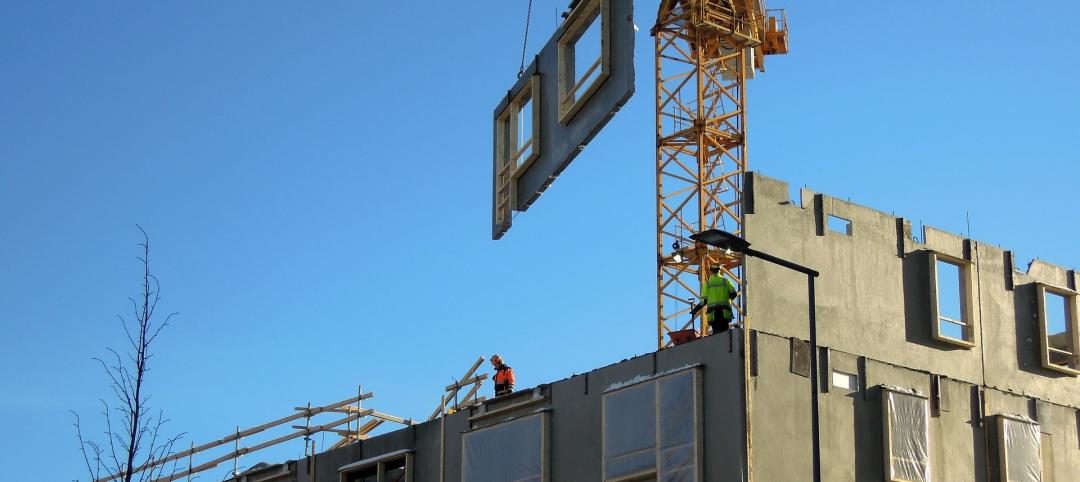Several real estate organizations, including the National Multifamily Housing Council (NMHC), have joined forces to urge Congress to fully fund the 2020 Census and the annual American Community Survey (ACS) in its 2016 budget, which lawmakers are currently debating.
Developers, builders, and contractors rely on these government data to gauge, among other things, changes in population demography and mobility, factors that play major roles in planning and construction plans.
Last year, the industry dodged a bullet when Congress failed to approve a measure that would have made participation in ACS voluntary. “This would have reduced the survey’s accuracy and made it more costly by requiring additional effort to ensure a representative sample,” NHMC states on its website. The Council notes, too, that the industry wants Congress to restore three-year data collection methods that got changed last year.
In its 2016 budget, the Obama Administration is requesting $1.5 billion for the Census Bureau in fiscal year 2016, including $663 million for the 2020 Census (a 91% increase over the previous Census budget) and $257 million (plus $15 million) for the ACS, according to the Census Project, a collaboration of state and local governments, advocacy and business groups, and research organizations interested in a fair and accurate census. Obama is asking Congress for an extra $1 billion for hiring and promotion for the decennial count, after plans to automate door-to-door interviewing in the 2010 Census failed to muster Congressional support.
Population data are of critical importance to municipalities, too. The Arizona Republic reported last month that the city of Chandler, Ariz., will pay the Census Bureau more than $4 million to conduct an updated population count for that metro later this year. Chandler is hoping that the new count will show how its population has increased significantly since the 2010 Census, which put Chandler’s population at 236,326 residents. (Arizona allocates state-shared revenue based on a city’s population.)
The Census Project notes that the Bureau is trying to save as much as $5 billion over the census lifecycle by investing early in research, testing, and development of new methods and technologies. For example, later this year the Bureau plans to hold focus groups with people who would be affected by a new classification being considered for Americans of Middle Eastern and North African descent. The 2013 ACS—with a sample size of 3 million addresses nationwide—estimated that there were about 1.5 million Arab Americans in the U.S. in 2006-10. If this test proves successful, the new classification could be included in the 2020 Census, according to the Associated Press.
Related Stories
Multifamily Housing | Jun 6, 2023
Minnesota expected to adopt building code that would cut energy use by 80%
Minnesota Gov. Tim Walz is expected to soon sign a bill that would change the state’s commercial building code so that new structures would use 80% less energy when compared to a 2004 baseline standard. The legislation aims for full implementation of the new code by 2036.
Codes and Standards | Jun 2, 2023
Supreme Court drastically reduces wetland areas impacted by Clean Water Act
A recent Supreme Court decision that substantially narrowed the Environmental Protection Agency’s authority to regulate millions of acres of wetlands is expected to open more land for development. More than half of the nation’s wetlands could lose protection under the Clean Water Act, according to environmentalists and legal analysts.
Multifamily Housing | May 30, 2023
Boston’s new stretch code requires new multifamily structures to meet Passive House building requirements
Phius certifications are expected to become more common as states and cities boost green building standards. The City of Boston recently adopted Massachusetts’s so-called opt-in building code, a set of sustainability standards that goes beyond the standard state code.
Contractors | May 26, 2023
Enhanced use of data is crucial for improving construction job site safety
Executives with major construction companies say new digital tools are allowing them to use data more effectively to reduce serious safety incidents and improve job site safety.
Affordable Housing | May 17, 2023
Affordable housing advocates push for community-owned homes over investment properties
Panelists participating in a recent webinar hosted by the Urban Institute discussed various actions that could help alleviate the nation’s affordable housing crisis. Among the possible remedies: inclusionary zoning policies, various reforms to increase local affordable housing stock, and fees on new development to offset the impact on public infrastructure.
Sponsored | Building Enclosure Systems | May 16, 2023
4 steps to a better building enclosure
Dividing the outside environment from the interior, the building enclosure is one of the most important parts of the structure. The enclosure not only defines the building’s aesthetic, but also protects occupants from the elements and facilitates a comfortable, controlled climate. With dozens of components comprising the exterior assemblies, from foundation to cladding to roof, figuring out which concerns to address first can be daunting.
Multifamily Housing | May 16, 2023
Legislators aim to make office-to-housing conversions easier
Lawmakers around the country are looking for ways to spur conversions of office space to residential use.cSuch projects come with challenges such as inadequate plumbing, not enough exterior-facing windows, and footprints that don’t easily lend themselves to residential use. These conditions raise the cost for developers.
BIM and Information Technology | May 8, 2023
BIM Council seeks public comments on BIM Standard-US Version 4
The Building Information Management (BIM) Council is seeking public comment on an updated national BIM standard. NBIMS-US V4 has been three years in the making and is scheduled to be released this fall.
Regulations | May 8, 2023
Supreme Court case likely to have huge impact on Clean Water Act
A case before the Supreme Court will likely determine how the Clean Water Act is interpreted and the ruling could open up new areas for development within or adjacent to wetlands.
Codes and Standards | May 8, 2023
New ASHRAE standard defines ‘zero energy’ and ‘zero carbon’ buildings
ASHRAE has released a new standard that defines the terms ‘Zero Energy’ and ‘Zero Carbon’ to describe buildings. ANSI/ASHRAE Standard 228-2023, Standard Method of Evaluating Zero Net Energy and Zero Net Carbon Building Performance, sets requirements for evaluating whether a building or group of buildings meets a definition of “zero net energy” or a definition of “zero net carbon” during operation.

















